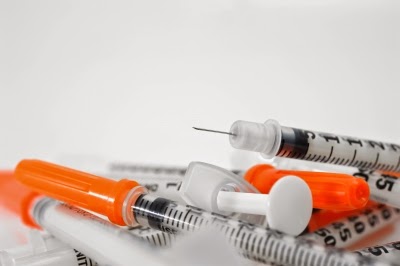Heroin deaths are on a sharp rise. The 8,260 deaths in 2013 were a 39 percent jump from year before, and nearly double the 4,400 seen in 2011 according to data from the U.S. Centers for Disease Control and Prevention (CDC). Every single one of those deaths is a tragedy... a personal one for the families, and a senseless one for communities struggling for answers. The problem has been called an epidemic by medical professionals, addiction specialists, law enforcement and politicians.
The 8,620 heroin deaths make an epidemic. The other drug killing 89,000 Americans every year equates to a pandemic. Alcohol is that drug. The third-leading cause of preventable illness and death in the U.S., and the world.
'But drinking is legal and safe in moderation,' is the public perception. The $226 billion annual pricetag shouldered by the U.S. economy is the public reality. That is the cost of alcohol misuse when it is examined by lost productivity, healthcare costs, law enforcement and property damage.
Americans will fight a heroin epidemic because it beats facing the alcohol pandemic. Why look at what, when and how much alcohol is consumed? It's easier to hate the heroin we don't understand, than to condemn the drug in the refrigerator. We'll manhunt and condemn the killer of 8,200 while the murderer of 89,000 walks free. One is sold by sociopathic thugs, the other is sold by Walmart, Walgreens, Kroger, Pick 'n Save and insert-your-favorite-hometown-store here. Towns will shred the streets to eradicate dope, its users and dealers if we find a hypodermic on the school playground, but we'll hold the beer-soaked church festival on the same playground.
Just like the sharp rise in heroin deaths can and should get swift and meaningful attention especially for its toll on teens, the larger drug-related death toll cannot be ignored.
In one year, there are slightly more than 84,000 visits to emergency rooms in the U.S. due to heroin. That's about 1 every seven minutes. There is an alcohol-related hospital admission every 30 seconds and 20-40 percent of general use (non-specialty) hospital beds are used to tend to alcohol-related complications. Heroin addicts aren't breaking the healthcare system... aging Baby Boomers aren't pushing it past capacity: Alcohol use is.
Last year, 80 percent of heroin deaths were caused directly by the drug in combination with alcohol or other drugs. About 10 percent were caused directly by heroin alone. The remaining 10 percent were caused by the drug together with suicide, accidents, homicides or medical disorders.
Perhaps it is the sudden vicious way heroin always kills, compared only to the equally senseless and sudden way alcohol only sometimes claims a life on the highway. One in eight alcohol-related deaths is from a car wreck. One in 40 is from alcohol poisoning (as noted in a related overdose article). The majority of alcohol-related deaths are far from the instant the alcohol is used. Most alcohol-related death comes in the form of homicide, accidental injury, drug interactions, heart disease (a related article demonstrates alcohol doesn't prevent it, it causes it), stroke (1 in 5 is alcohol-related), cirrhosis and more than 60 other diseases... including cancer. The “C-word.” Alcohol IS a known carcinogen. Heroin might be as well, if its users lived long enough or in numbers high enough to constitute a study.
In either case, doctors have stated that no amount of either substance is safe. (See No Amount is Safe) People tend to take that to heart when concerned with heroin since most of the population will never see the substance, but they'll ignore the warning when it comes to the beverage as seen on TV ads or enjoyed with meals.
The reality check here is not that alcohol should be banned, rerunning the failed experiment of prohibition. It's that we need to look at society's favorite drug as a sneakier murderer more fatal than the killer drug, heroin. If there's an epidemic, there's also a pandemic. What causes problems, is one.
(review full article)
Visit alcohologist.com for a replay of CBS Sports' Power Up Your Health featuring Scott Stevens. Host Ed Forteau led a discussion on the health risks and myths of health benefits of drinking. Lucy Pireel's "All That's Written" included a feature on Every Silver Lining Has a Cloud called "When alcohol doesn't work for you anymore." Details on the third literary award for Every Silver Lining Has a Cloud also can be found on www.alcohologist.com, plus an interview with Christoph Fisher Books. Mr. Fisher is an acclaimed international author from the UK, among his works is the Alzheimer's book "Time to Let Go." Download the FREE Alcohology app in the Google PlayStore today.
(review full article)
Visit alcohologist.com for a replay of CBS Sports' Power Up Your Health featuring Scott Stevens. Host Ed Forteau led a discussion on the health risks and myths of health benefits of drinking. Lucy Pireel's "All That's Written" included a feature on Every Silver Lining Has a Cloud called "When alcohol doesn't work for you anymore." Details on the third literary award for Every Silver Lining Has a Cloud also can be found on www.alcohologist.com, plus an interview with Christoph Fisher Books. Mr. Fisher is an acclaimed international author from the UK, among his works is the Alzheimer's book "Time to Let Go." Download the FREE Alcohology app in the Google PlayStore today.


No comments:
Post a Comment